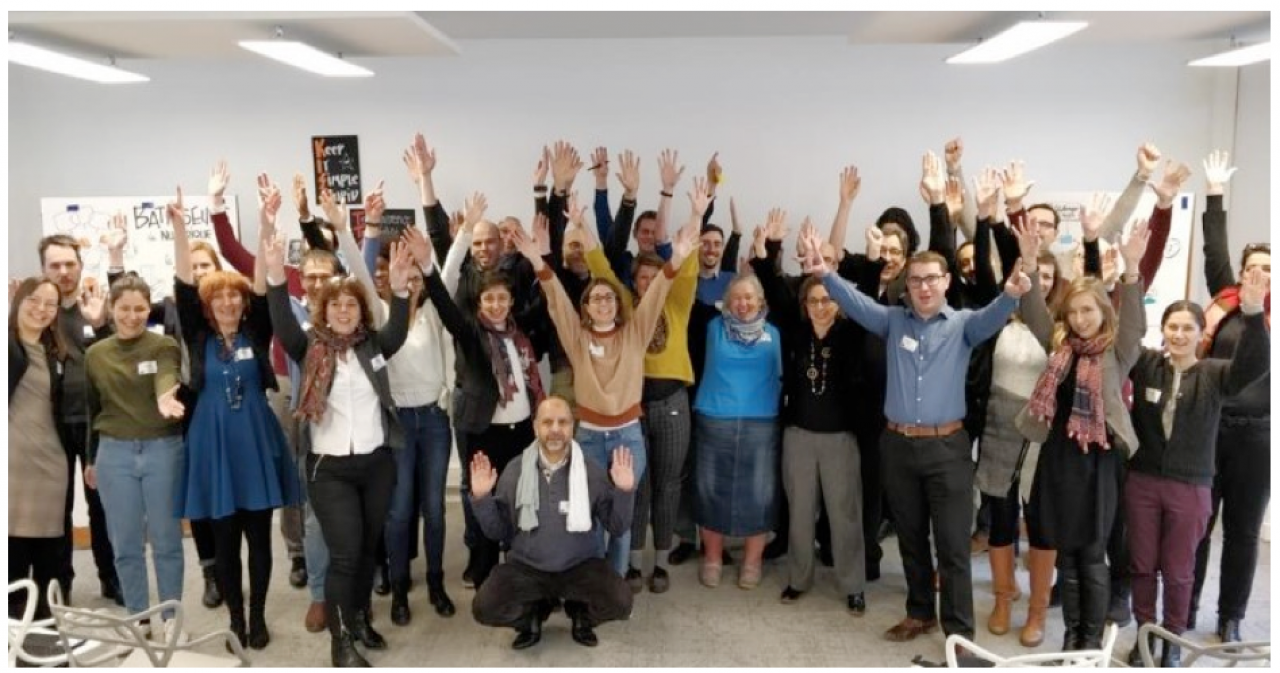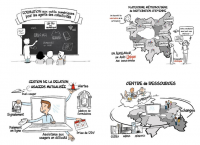
“Digital Builders”, this is the name of the initiative launched by the Métropole du Grand Paris based on InnovaTO project. The aim of Digital Builder program is to gather a community of local civil servants mobilised to collectively develop new digital public services on a metropolitan scale.
By Edoardo Paradisi
In order to build this community, the Métropole called upon civil servants from various metropolitan municipalities, already acculturated to Digital issues and eager to try innovative approaches, such as Digital Innovation funds laureates or Digital Explorers program members.
The communication of the program followed three steps: E-mailing campaign, a presentation during events and a flyer distribution during exhibitions.

The program has been built in order to be quickly efficient and to provide feedbacks for future improvements. It focuses only on five well-known and politically supported issues:
- Digital inclusion
- Citizens' participation
- Relationship with user/citizen
- Metropolitan resource center
- Data-driven monitoring
The local support group has a strong involvement in the whole program which have a one million euros specific fund to implement the solutions (Metropolitan Fund for Digital Innovation). The program has been organised through three phases. The first one consisted of a two-days collaborative workshop which took place on November 6th and 7th 2019. Following the Scan-Focus-Act approach, a Digital Builders community identified five potential metropolitan digital services. At the end of this phase, each participant enlisted himself on deepening one of these projects.

During the second period, in November and December 2019, each group has worked on its project in order to produce a basic preliminary design of each service, which presents: the goals of each project and the way to reach them, an estimation of the corresponding budget, the identification of potential partners, and a list of the first actions to launch. Phone meetings have been organised and new builders and experts have been gathered around each project. This step has been monitored and led by a dedicated consultant. He/she has been in charge of formalising the conclusion from each group. A “Teams” platform has been created to stock documents and offer a space to the Digital builders to interact. At the end, due to a lack of participant, one project has been abandoned.
On January 21st 2020 a one-day workshop has been dedicated to share and improve each project, with three main goals: presenting each basic preliminary design to the rest of the community, improving each project by the reaction of the other Digital Builders and new experts of each thematic, and pitching each project to a jury of Digital Scouts who could give additional advices to each group.

At the end of the workshop, four services have been clearly identified by the community:
- In the Digital inclusion issue: formation for civil servants to Digital basic knowledge, basic assistance to citizen in difficulty with digital procedures, and diagnostic and orientation of public in digital precarity;
- In relationship to the Citizens' participation area: a metropolitan platform for citizens' participation opened to both Métropole du Grand Paris and local municipalities’ consultations;
- In Relationship with user/citizen: a mutualised management of the digital user relations in local municipalities;
- As for the issue regarding Metropolitan resource center, the community identified a metropolitan platform to share knowledges, feedbacks and skills.

Séverine Rommé, project coordinator of Métropole du Grand Paris, refers about some assessments that have already been drawn about the program.
In relationship to the numbers of the project as of yet, each workshop gathered around thirty participants, from thirty local municipalities; four services have been chosen by the community, one service (mutualised knowledge database) and one thematic (data) have been abandoned during the project.
Regarding the impact on users: one group (Relationship with user/citizen) is strongly involved even after the second workshop, two groups need leadership by the MGP to act (Digital Inclusion and Citizen participation) and for one group the project still needs improvement and definition (resource center).
“Nevertheless, the main criteria to evaluate the success of the program – Séverine Rommé said - remain our ability to concretely implement each service that the Digital Builders have imagined”.
